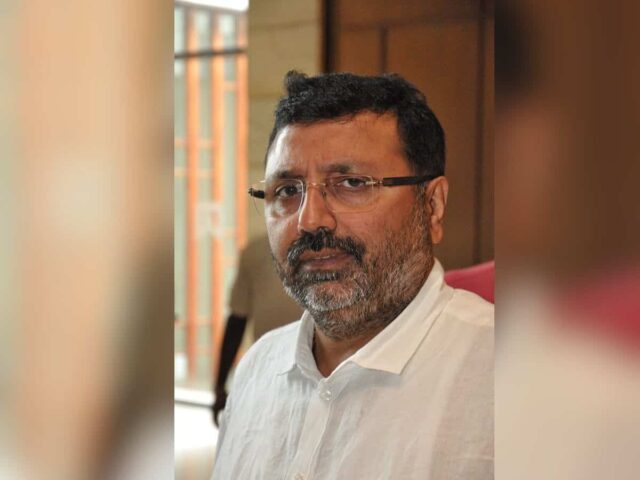New Delhi: BJP MP Nishikant Dubey on Saturday stirred controversy with a sharp statement directed apparently at the judiciary amid the ongoing Supreme Court review of the Waqf (Amendment) Act, 2025.
Dubey questioned the judiciary’s role in legislative matters, suggesting that if courts assume the task of lawmaking, the existence of Parliament becomes redundant.
The Supreme Court began hearing a series of petitions on Wednesday challenging the constitutional legitimacy of the newly amended Waqf Act, which had cleared both houses of Parliament earlier this month. Petitioners argue that certain provisions — such as permitting non-Muslims in Waqf Boards and allowing for the removal of “Waqf by user” properties — violate fundamental constitutional rights.

Taking to the social media platform X, Dubey posted in Hindi (translated in English): “If the Supreme Court is going to make the laws, then the Parliament building should be shut down.”
The post was widely interpreted as a veiled criticism of the judiciary’s involvement in scrutinising and possibly suspending aspects of the legislation.
During the hearings, the apex court took note of key commitments from the Central Government. Among them, the Centre assured the bench that no non-Muslim individuals would be appointed to any Waqf Boards or Councils until further orders were issued by the court. Moreover, the government committed that no Waqf properties, including those identified as ‘Waqf-by-user’, would be removed from official records or have their classification altered by District Collectors during this interim phase.
The top court had earlier indicated that it may stay some of the provisions of the amended Act, including those related to Waqf-by-user, inclusion of non-Muslims in the Waqf Boards and Council and the powers of the Collector to change the status of disputed Waqf lands.
However, after recording the assurances from the Centre, the Supreme Court granted the Union Government one week to file a preliminary response, supported by all relevant documentation. The next hearing in the matter has been scheduled for May 5.
















































